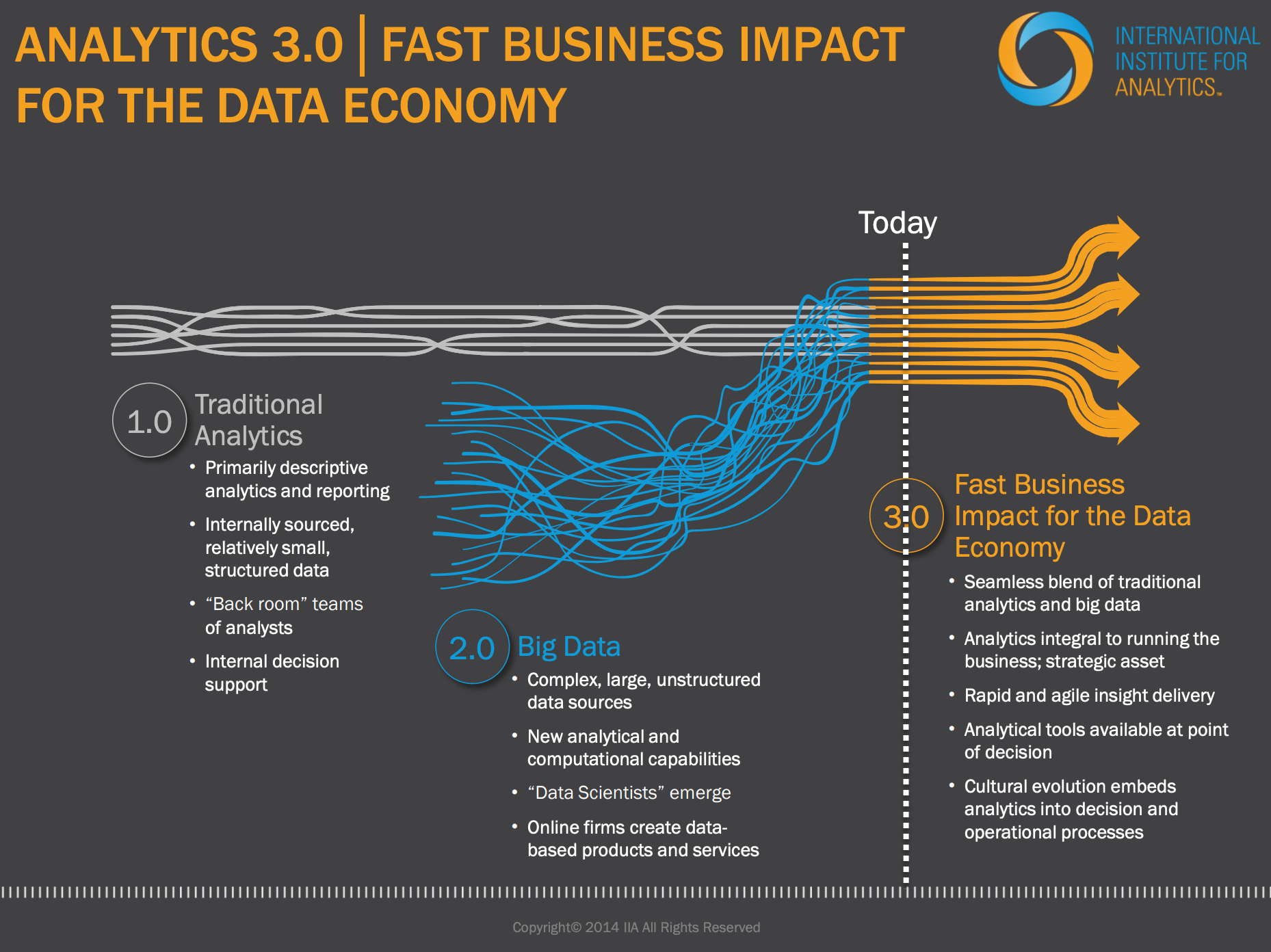“Purpose-built apps”
“Low-code app development”
“hpaPaaS”
“Citizen Data Scientists”
“Data monetization”
Witness the cloud of new buzzwords floating in the air. Let me see if I can knit these concepts together to shed light on their meaning and implications for the future of analytics.
Collectively, these phrases are a reaction to the long-standing challenge of getting more data into more hands. “Democratization of data” can seem perpetually right around the corner (if you’re listening to vendor marketing) or a distant illusion (if you are in most organizations).
At Juice we have a picture that we call ‘The Downhill of Uselessness’. It shows how the usefulness of data seems to decline as you try to reach more users. On the far left, the most sophisticated data analysts and data scientists are happily extracting value from your data. But as you extend to the outer edges of your organization, data becomes distracting noise, TPS reports, and little-used business intelligence tools.
Three barriers to democratizing data
The struggle of getting data to more people in more useful ways boils down to a few unsolved problems.
First, general purpose platforms and tools (data lakes, enterprise data warehouses, Tableau) can be a foundation, but they don’t deliver end-user solutions.
"Vendors and often analysts express the idea that you can master big data through one approach. They claim if you just use Hadoop or Splunk or SAP HANA or Pervasive Rush Analyzer, you can “solve” your big data problem. This is not the case.”
— Dan Woods, Why Purpose Built Applications Are the Key to Big Data Success
Second, reporting and dashboards deliver information, but often lack impact. In our experience, most data delivery mechanisms lack: 1) a point of view as to what is important; 2) an ability to link data insights to actions in a users’ workflow.
Third, the people who truly understand the problems that need to be solved don't have the technical capacity to craft re-usable solutions. We all have that elaborate spreadsheet that is indispensable to running your business and, frighteningly, only understood by a single person.
A better path forward
Finally, there is a realization that these problems aren’t going away. There needs to be better approach. It will come in two parts:
Focus on creating targeted solutions (applications) that solve specific problems. Apps can integrate into how people work and the systems where actions occur. They attempt to let people solve a problem rather than simply highlighting a problem. And applications are better than general purpose tools because they can bake in complex business rules, context, and data structures that are unique to a given domain.
Give greater impact and influence to the people best know the problems. It has always been unfair to ask technologists to create solutions for domains that they don’t deeply understand.
This direction aligns with Thomas Davenport’s view of Analytics 3.0 (from way back in 2013). He postulated that the next generation of analytics would be driven by purposeful data products designed by the teams who understand customers and business problems. (No offense, Tom, but we were griping about ivory tower analytics back in 2007.)
And so emerges a new model and new collection of buzzwords...
Purpose-Built Applications…
Solutions that start with the problem and craft an impactful answer. Their success is measured by fixing a problem rather than in terabytes of data stored.
…built using a high-productivity Application Platform as a Service (hpaPaaS)
Cloud-based development environments requiring little coding ability (‘low-code’) — but requiring knowledge about the domain and the problem to be solved.
…to be used by Citizen Data Scientists (CDS).
the people who know the problems most intimately.
At Juice, we may have backed into this trend or cleverly anticipated it. Either way, now I can say that Juicebox is a low-code hpaPaaS designed for CDS to create purpose-built apps. Better yet, we are now fully buzzword compliant.


